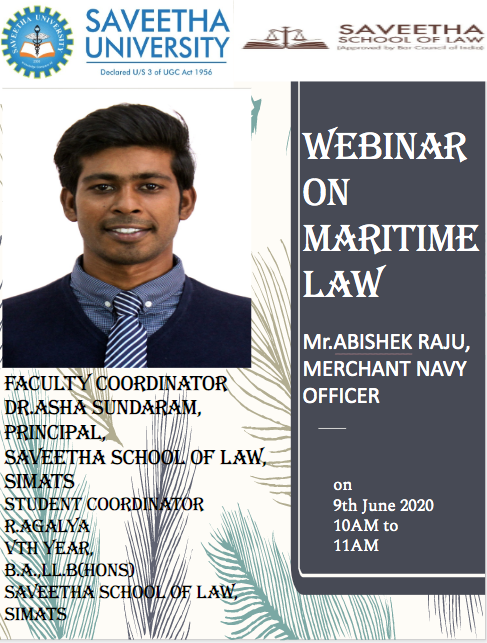The webinar started at 12 pm on 8th June of 2020. The student organizer welcomed the special guest and the participants. The guest started his lecture from the Emergency Provisions in the Constitution of India
Art 352-360 Part 18
The Constitution of India provides Emergency Provisions. Three kinds of Emergencies have been mentioned in the Constitution. Then he moved on National emergency of Article 352
44th Amendment - power of the Executive to continue the emergency indefinitely has been curtailed. A proclamation of emergency may remain in force for 1 month in the first instance.
State Emergency
Article 356 of the Constitution of India is based on Section 93 of the Government of India Act, 1935.
According to Article 356, President’s Rule can be imposed on any state of India on the grounds of the failure of the constitutional machinery.
The 44th Amendment to the Constitution (1978) brought in some constraints on the imposition of the President’s Rule beyond a period of one year.
Revocation
Financial Emergency
According to Article 360 if the President is satisfied that there is a situation where the financial stability of India or any part of the territory is threatened; a Proclamation of Financial Emergency may be issued.
Financial Emergency (FM) has never been imposed in our country even when the worst financial crises hit our country in 1991.
The economy was in turmoil. Back then India was not on good terms with the western world and depended on the Soviet Union for its exports.
But when the Soviet Union fragmented into 15 nations, those exports went significantly down. The US-Iraq war let to an exponential increase in oil prices.
Read More




















